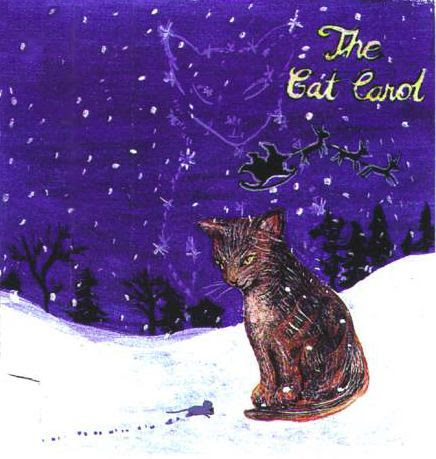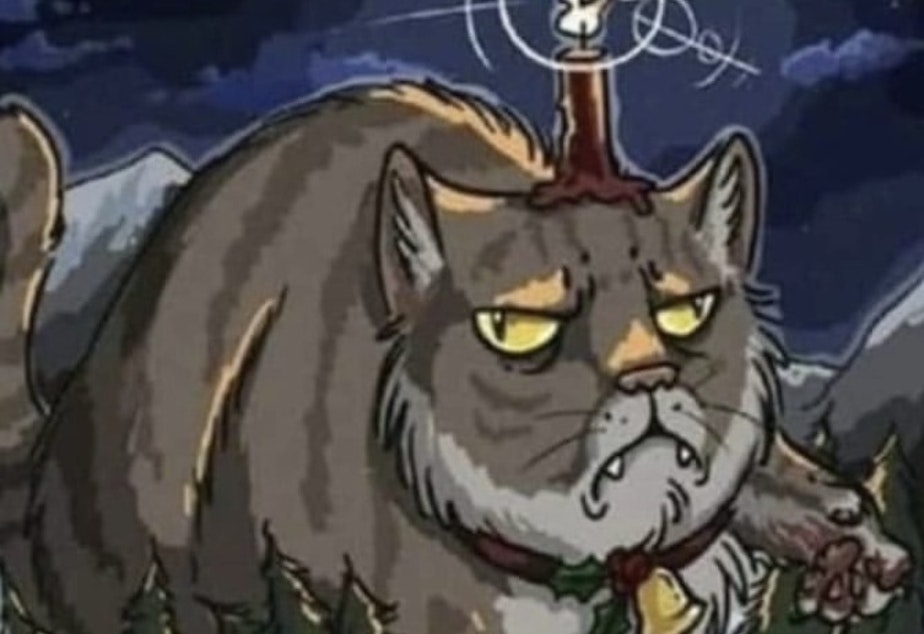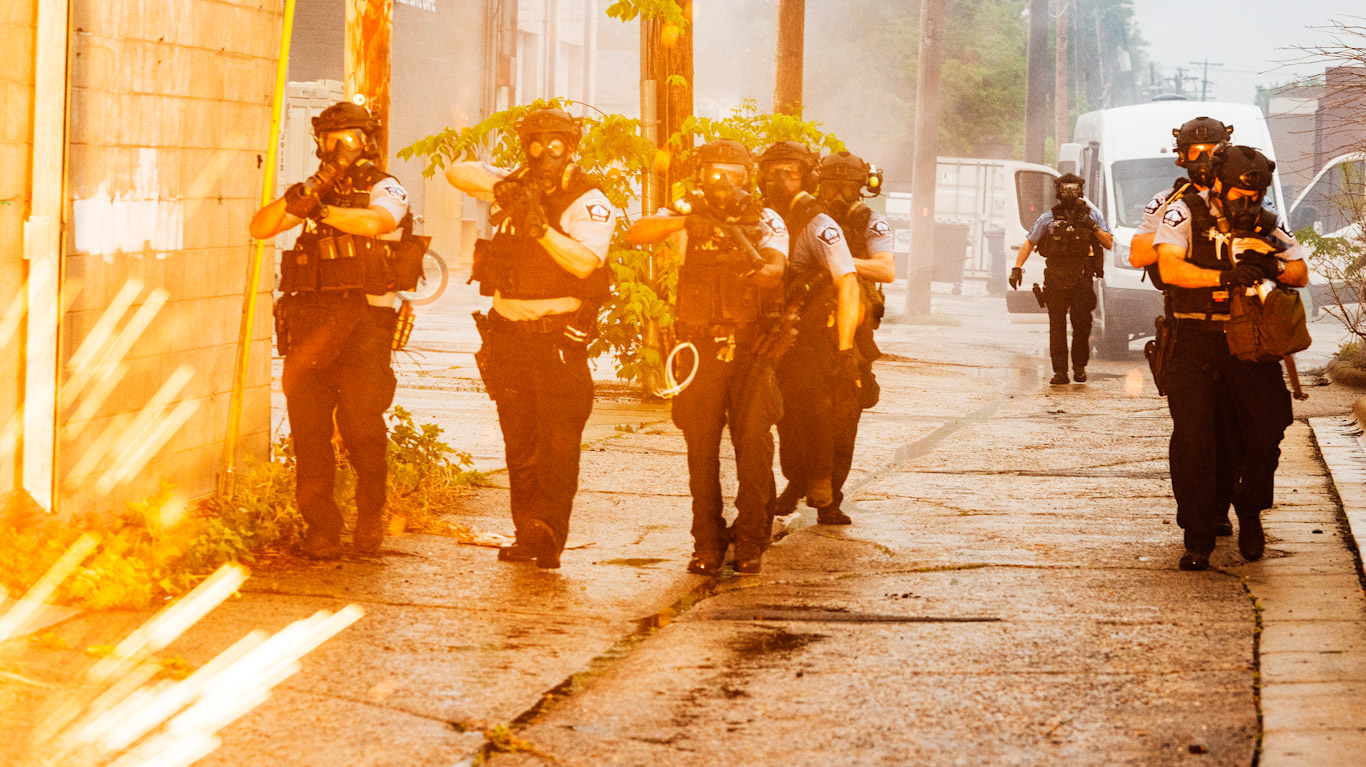Migrant Bulgarian women are being raped, abused and threatened with death in both Christian Europe and Islamic Countries.
Muslim Brotherhood hails lynching of innocent Bulgarian nursesRaping and lynching in exotic Greece
There is a Bogomil Blog that has an online campaign for clemency for the Bulgarian Nurses and Palestinian Doctor sentenced to death in Libya.
America's newest lynching ally.
Of course the Bulgarians have always been subject to abuse since their country is the origin of the Bogomil heresy.
And this is the subtext of the persecution of Bulgarian women as 'filthy', 'disease carriers'. It is a prejudicial religious and cultural meme carried by Islam and Christianity because both confronted the Bogomil heresy in the Balkans.
Briefly, Bogomilism was both dualist and 'puritan'.
It was dualist in that it believed that Satan or Satanael, God's rebel elder son, was the creator of the universe. All matter therefore derives from an autonomous evil principle at war with God. Our bodies and their functions are unsanctified and cannot be sanctified. Satan made the body of man; the soul only was from God. It was puritan in that it rejected most of the dogmas and rites of the church as a human superstructure without the authority of Christ - an illusion which Satan has foisted on us. Thus typical Bogomil doctrine rejected all the Old Testament except the Psalms and retained of the New only Jesus's teachings in the Spirit. His whole human life, as partaking of matter, was necessarily mere appearance. Atonement and Redemption become meaningless if man, created not by God but by Satan, never fell. The Mother of God and the Cross are hateful debasements; the sacraments, including marriage, valueless; the Doctors of the church - false teachers. The doctrine of the Trinity was interpreted in various unorthodox ways. Their practice therefore was deceptively simple: prayer to God and to his true emanation, Jesus - especially the Lord's Prayer; non-involvement as far as possible in all the toils of matter, including sexual abstinence; the avoidance of wine and all food of living origin.
The medieval cemetery had about 110 of these large stone slabs, carved with various Bogomil motifs. 
The most common figure on the gravestones is the big hand guy. He is carved with a crossbow behind one cocked arm and with a ring floating Tolkein-like over a grotesquely exaggerated upheld hand. His wears the gear of an armored knight.




The Bogomils (also called “Patarenes”) were the original all-Bosnian, indigenous high civilization. (More on the Bogomil Heresy). Consequently, current 21st Century Bosnian nationalism uses them as a symbol. Religiously the Bogamil culture is interesting. They were heretics persecuted by Rome. Pressure from the Catholic Church eventually aggravated the Bogomils to the point where they either capitulated to Catholicsim, or,more often, were so turned off by Catholicism that they left Christianity and converted in large quantities to Islam when the Ottomans came, forming the backbone today of who we think of as “The Bosnian Muslims”. Whatever. I just know I like their tomb carvings.
The origin of the Bogomils begins in the schismatic power struggles of the early Chrisitan Church State. The Bogomil and other gnostic sects were the origin of Protestantism, and the modern Anabaptist and Baptist movements. As with most religious movements they began as a protest against church and state doctrine and repression.
The now defunct Gnostic social-religious movement and doctrine originated in at the time of Peter I of Bulgaria (927-969) as a reaction of the state and clerical oppression. In spite of all measures of repression, it remained strong and popular until the fall of Bulgaria in the end of 14th century.
"From AD 830, the Armenian branch of the Paulician movement was centered on a village called Tondrak, hence the name Tondrakites. They attacked the feudal privileges of the Armenian barons, who united with the clergy in persecuting and suppressing them. The Tondrakites are hailed by modern Soviet historians as ancestors of present-day Communism; a tract purporting to be their manual of doctrine was published in 1898, under the title The Key of Truth. The Paulicians are also important for their influence on the development of Bogomilism in the Balkans, where there were important Armenian colonies, particularly in Bulgaria."
The cardinal point of the Paulician heresy is a distinction between the God who made and governs the material world and the God of heaven who created souls, who alone should be adored. They thought all matter bad. It seems therefore obvious to count them as one of the many neo-Manichaean sects, in spite of their own denial and that of modern writers.
The whole ecclesiastical hierarchy is bad, as also all Sacraments and ritual. They had a special aversion to monks. Their own organization consisted first of the founders of their sect in various places. These were apostles and prophets. They took new names after people mentioned by St. Paul, thus Constantine called himself Silvanus; apparently they claimned to be these persons come to life again. Under the apostles and prophets were "fellow-workers" (synechdemoi) who formed a council, and "notaries" (notarioi), who looked after the holy books and kept order at meetings. Their conventicles were called, not churches, but "prayer-houses" (proseuchai). They maintained that it was lawful to conceal or even deny their ideas for fear of persecution; many of them lived exteriorly as Catholics. Their ideal was a purely spiritual communion of faithful that should obliterate all distinctions of race. Their enemies accuse them constantly of gross immorality, even at their prayer-meetings. One of their chief leaders, Baanes, seems to have acquired as a recognized surname the epithet "filthy" (ho ryproz). They would recognize no other name for themselves than "Christians"; the Catholics were "Romans (Romaioi), that is, people who obey the Roman emperor, as the Monophysites called their opponents Melchites. Harnack sums them up as "dualistic Puritans and Individualists and as "an anti-hierarchic Christianity built up on the Gospel, and Apostle, with emphatic rejection of Catholic Christianity" (Dogmengeschichte, II 528).
The influence of the Bogomil heresy spread across Europe through out the Medieval period reaching France and even England.
In its most successful form it became associated with the Cathars of France. Who practiced a communist equality between people a sharing of those goods in common, and equality between men and women.
It is the Bogomil beliefs that create the confusion between pre-Christian and post Christian Gnosticism.
The Bogomils were without doubt the connecting link between the so-called heretical sects of the East and those of the West. In the 12th and 13th centuries, the Bogomils were already known in the West as "Bulgari". In 1223 the Albigenses are declared to be the local Bougres.
The Bogomils spread westwards, and settled first in Serbia; but at the end of the 12th century the king of Serbia persecuted them and expelled them from the country. Large numbers took refuge in Bosnia, where they became known as Patareni. From there they moved to Italy and Hungary. In the 15th century the conquest of Hungary by the Turks ended the persecution of the Bogomils. It is claimed that a large number of the Bosnians accepted Islam. Few or no remnants of Bogomilism have survived in Bosnia.
The Bogomils disappeared because of persecution and the expansion of Islam, but elements of their ideas and folklore persisted for centuries in Slavic lands, and it is still an open question whether the reference Bulgari in Europe has associations of heresy.
This book will offer its readers an unusual trip in the medieval culture of Europe, following and proving as it does the conveyance of a large number of apocrypha and Bogomil literature to England. It is a well-known fact that Bogomilism, or haeresia Bulgarorum, spread all over Europe by branches like the Cathars, the Patarenes, the Poblicans (same Popelicani), the Begins, the Spirituals and even later offshoots. Until now, however, it was assumed - particularly by 20th century medieval studies - that the heresy reached England only occasionally, appearing in Oxford in 1162. The heretics were stigmatised and banished then and there is no other record of Cathar presence.
ACCORDING THE DUALISTS (BOGOMILS, CATHARS AND LOLLARDS) CHRIST FREES ALL SOULS FROM THE HELL |
| |
| The photograph shows a miniature from the St. Albans Psalter (Albani Psalter). As one can see here Christ saves all souls – “out of helle mennes souls” to quote The Vision of Piers Plowman (Passus XVIII, l. 373). The Psalter was created possibly between 1123 and 1135 at St. Albans Abbey near London. We are very grateful for this high quality reproduction provided personally by Dr. Helmar Härtel from the Herzog August Bibliothek Wolfenbüttel, where the St. Albans Psalter is kept. | Christ leads the souls away from hell.Mural painting from the Boyana Church, 13th century. The Bulgarian art critic Kiril Krustev is convinced that the anonymous Boyana artist was under the influence of Bogomil ideas. The salvation of all souls is emphasized by Avel with a shephard’s stick (visible to the left ), among other descendants of Adam. Photo: Vl. Vitanov. More information in DUALIST IDEAS IN THE ENGLISH PRE-REFORMATION AND REFORMATION (Bogomil-Cathar Influence on Wycliffe, Tyndale, Langland and Milton). Bul- Koreni Publishing House, Sofia. 2005, p.p. 117-120; 129-130. | | | Both compositions correspond to the apocryphal Gospel of Nicodemus extensively used by the Dualists. | |
It is this rise of speculation and the concept of the 'secret' or 'lost' book , more of which I will deal with in a separate posting, which becomes key to the heretical movements in Europe through the decline of Feudalism and the rise of the humanist protestant movements. It is this lost or secret book that influenced Dan Browns Da Vinci Code, and which is why the Catholic Church has gone on a campaign denouncing it as a Gnostic Heresy. Hey its only a novel.
Gnosticism Sells Big
By Gary Potter
Editors Introduction: The ancient heresies known as Gnosticism are very much in our midst, forming an integral part of the "culture of death" referred to frequently by the Holy Father. In this powerful critique, Gary Potter confronts one of its latest literary expressions: The Da Vinci Code.
Like other gnostics, the Cathars rejected the sacraments, except for one they made up, a sort of Last Rite called the consolamentum. However, unlike some other dualists, there was a pragmatic side to the Cathars. They frankly recognized that most men and women are incapable of lives of total self-denial. Those who could manage it were honored by the Cathars as the perfecti (the Perfect Ones). Most were simply credentes, ordinary believers. The difference ultimately did not much matter since the consolamentum was held to absolve believers from all sins so that it was not necessary to try to live virtuously. This meant, in practice, that Cathars could (and often did) give themselves to lives of orgiastic debauchery and remain confident in being "saved" — as long as they received consolamentum at the end. "Should a Believer survive after having been given the consolamentum, he would be smothered to death by his family in a practice known as the endura. The endura was necessary because the administration of the consolamentum could only be performed once in a person's life, and it was seen as absolutely necessary to assure the salvation of the non-Perfect among the members of the community." (This writer has tried to research the point, but cannot say if there were any Cathar theologians who taught consolamentum "by desire.")
Another difference between Catharism and some other forms of gnosticism was that in its ranks women were more-or-less equal to men. They, too, were seen as capable of becoming perfecti to the extent very many of either gender could. It appears women may even have played roles in Cathar ceremonies in the way that female lectors, acolytes and Extraordinary Eucharistic Ministers do in the Novus Ordo Church. It should go without saying that among the Cathars suicide was not regarded as sinful. On the contrary, this world being evil, leaving it voluntarily was perfectly reasonable, even virtuous.
The Bogomil or Bulgarian heresy gave us the term bugger.
Thus a historical cultural prejudice exists within the European imaginination in particular about Bulgarians but overall applied ot all Slavs.
The Origin of "Bulgarian" as a Euphemism for GaysLong before modern homophobia as expressed by Church Fathers and Imans, the Bogomil heresy gave Christianity and Islam an excuse to depict a people and an idea/ideology as being a contagion, a disease. Not unlike the current mythologies around homosexuality and AIDS/HIV.
Islam already had contact with the Zorastrian dualist heretics the Yzedi/Yezedi/Yezidi, who still exist in the Kurdish region of Iraq and remain persecuted by Islam. While persecuted for heresy they had not been equated with pestilence or disease, the attribution of these qualities to the Bogomil, makes them unique.
Of course its comes down to sex, all religion does. And not just homosexuality but sex without procreation. Which is the core of the Bogomil heresy. The impression among the clergymen wasn't lesser, in 1106, Theophylact of Ohrid wrote to the Basileus John Comnenus:
"One of the monks and clergymen [a Bogomil leader called Vasiliy, Slav name], to my misfortune, scorned God and became a prey to shamelessness, rejecting the human feeling of shame, and assumed the figure of a harlot, rejected his own image and ate meat rather than fasting, [became] libertine rather than forbearing... That is why I ordered that this contagious and common disease be expelled from these territories [...]"
The relevant feature of these gnostic forerunners of Ashmolean Rosicrucianism is the doctrine of utter depravity of the "flesh" which is the direct source of the materialist dogmas of Bacon, Descartes, Locke, Newton, et al. The sexual perversions of the Cathars are a direct, doctrinaire correlative of this materialist dogma of theirs. Briefly, one of the cult's Elect was forbidden to place his semen in the vagina of a woman, lest he cause the procreation of newborn human flesh! The spirit inhabiting the Elect must be kept apart from the utter depravity of the fleshly process of human procreation. The Cathar cult was known in France as the Bulgarian cult, or "Les Bougres," which translated into English as "the Buggers." Because of the cult's peculiar sexual perversion, which flowed from their gnostic doctrine of separation of matter and spirit, it resorted to various other kinds of sexual activity, and thus the name "Bugger" became associated in English with homosexuality.
Another term that came into use in the twelfth century but gained ground after 1235, is Bulgarus "Bulgarian," whence French bougre and English bugger (from which the nouns of action bougrerie and buggery were subsequently derived). It was the merit of a heresy hunter Robert le Bougre to have confounded all the heretical sects under one name, which became synonymous with "heretic" and then "sodomite" and "usurer." Catholic inquisitors accused adherents of dualist sects of practicing the detestable vice, in part because of their unconventional views on sexual morality. English "buggery" is not, however, unambiguously attested in the sexual sense until the penal law of Henry VIII in 1533; it is nowhere found in Middle English. This term is the semantic reflex of the equation sodomite = heretic in late medieval Latin Christendom paralleled by such phrases as Ketzer nach dem Fleisch alongside Ketzer nach dem Glauben.
And the Catholic Church continues to battle against the Bogomil heresy, even today.....French couple, not wanting children, denied marriage by parish priest
METZ, France (CNS) -- A French bishop has defended a parish priest in northern France who refused to officiate at a marriage because the couple planned not to have children. Bishop Pierre Raffin of Metz said the priest was correct in denying the marriage because the church requires the "personal adherence to the Catholic Church's vision of marriage -- that marriage is entered into freely, for life, and for the procreation of children." Bishop Raffin said the church regularly granted marriage to people unable to conceive children "for reasons of age or physical impediment," but required healthy couples to express their willingness to procreate "in writing and publicly" at the moment of marriage. "The absence or explicit refusal, hard and confirmed, of one of these dispositions prevents the priest from solemnizing a religious marriage," he said.
See
Heresy
Gnosis
Gnostic
Find blog posts, photos, events and more off-site about:
Libya, Bulgarian, Bulgaria, Bogomil, heresy, death, AIDs, Bulgarian nurses, Palestinian doctor, gnostics, Cathars, Bosnia, Bozniaks, Balkans, Medieval, gnosis, mani, dualism, bugger, homosexuality, sodomy, women,












